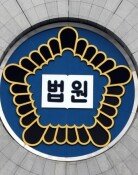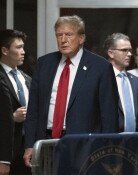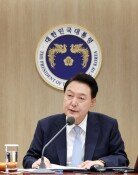NPAD needs fundamental change to earn public sentiment
NPAD needs fundamental change to earn public sentiment
Posted August. 01, 2014 06:41,
The leadership of the New Political Alliance for Democracy (NPAD) including co-Chairmen Kim Han-gil and Ahn Cheol-soo resigned taking the responsibility for a crushing defeat in the July 30 parliamentary by-elections. Kim said, We lost in the elections that we had to win. I take all the responsibilities and resign from the co-chairmanship. Another party leader Ahn also said, I will assume all the responsibilities as a party leader. Kim and Ahn shut their mouths tight when asked the reason for humiliating defeat.
With their resignation, the NPAD`s co-leadership, which was formed through a merger of the former Democratic Party and Ahns political faction this March, has come to an end just in four months. The partys main slogan "new politics" has faded. Its standing advisor Sohn Hak-kyu announced his retirement from politics Thursday after being defeated in the election. Until the new leadership is established, the party is highly likely to be caught in whirlwind. The new leadership may affect the general elections in 2016 and the presidential election in 2017, which is highly likely to result in serious competition among factions for the party hegemony. Some members of the pro-Roh faction argue that Moon Jae-in, the former chief of staff for late President Roh Moo-hyun, should come to the front. Some predict that the pro-Roh faction and 486 hard-liners will take the party hegemony as reaction to the moderate leadership.
However, reshuffling of the party leadership does not bring back the public sentiment that has already gone away. The party has defeated in almost all elections since the 2007 presidential election, except for the 2010 local elections. Han San-jin, chairman of the party`s review committee for the last presidential election, diagnosed, A series of defeats are the results of the narcissism of party members, who had been involved in the activist groups, hegemonic organizational culture, arrogance and short-sightedness, moral hazard, to put the partys interest before the publics interest. Even after this diagnosis, nothing much has been changed. And even after Ahn joined the party, we are viewing Hans diagnosis is still effective.
Biggest reason behind the humiliating defeat was the failed nomination. Co-Chairmen Kim and Ahn pushed ahead too hard the strategic nomination and the return-to-your-favor nomination, having earned weak solidarity even from the party and resistance from the public. More fundamentally, the partys unyielding tough stance has annoyed the public regarding the deadly sunken ferry Sewol issue. The partys short-sightedness focusing on the passionate supporters hampers it from reading the publics mind that felt Sewol ferry fatigue. The by-election results show that voters judged the opposition party calling for stereotyped judgment on the ruling party.
However, some figures in the party provided wrong prescription, such as the party needs to set up a clear progressive political line. The emergency committee led by floor leader Park Young-sun and the new party leadership should discern the real root-cause of the by-election defeat to earn back trust of the public. The partys foundation needs to be transformed, to truly born again as a reasonable political party in pursuit of co-existence and co-prosperity, rather than in the hostile political line for all-out struggles. Also needed is the groundbreaking reform to read the global economic trends and to provide full support for economic revival. Another basic requirement to earn the public sentiment is innovation in the party operating processes to be in line with party democracy, including the nomination system.
Headline News
- Israel prepares for retaliation against Iran
- Samsung reclaims top spot, surpassing Apple in smartphone market
- 77% of Koreans in 20s and 30s are 'Kangaroo Tribe' due to job crisis
- KBO referees embroiled in controversy over ABS decision concealment
- Inflation, oil price surge put double shock on global economy







